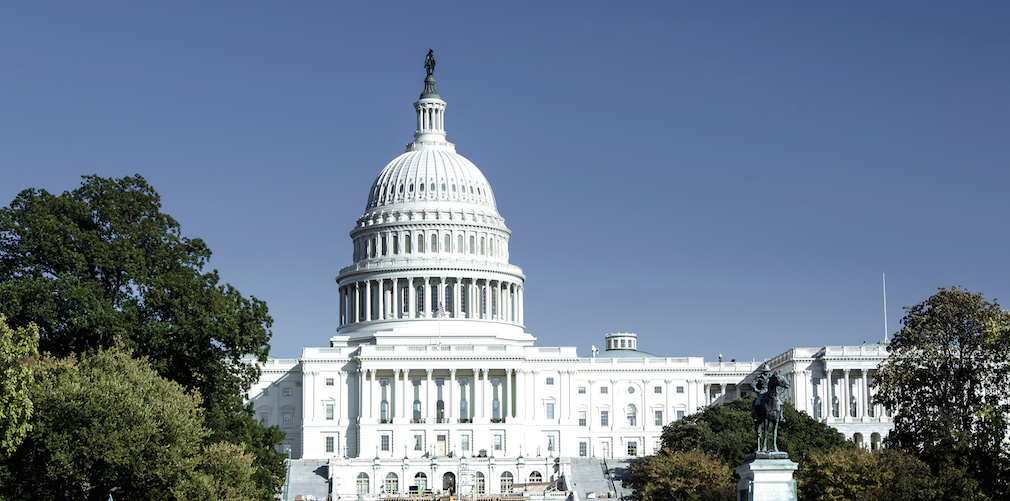The House of Representatives just passed a bill that could create a huge impact on the mortgage industry, as mortgage loan officers may soon be able to transition from a traditional bank to a nonbank and keep originating new mortgage loans without having to wait for a new license.
On Monday, the House passed, via a voice vote, the SAFE Transitional Licensing Act of 2015, under which a registered loan originator who moves to another state or switches from a depository institution to a nonbank lender could continue originating loans for as long as 120 days while applying for a new license.
Under the current rules of the SAFE Mortgage Licensing Act, an LO that moves between states or from a bank to a nonbank is required to wait for a new license before they can begin originating at their new job.
The bill is sponsored by Rep. Steve Stivers, R-OH, who said that without this bill, “a loan officer who moves from a federally-insured institution to a nonbank lender must sit on their hands for weeks, even months, while they meet the SAFE Act’s licensing and testing requirements.”
This bill would change that, and now it moves on to the Senate with bipartisan support.
The Mortgage Bankers Association welcomed the passage of the SAFE Transitional Licensing Act and urged the Senate to act quickly and pass the bill as well.
“MBA commends the House of Representatives for unanimously passing H.R. 2121, the SAFE Transitional Licensing Act. This is an important piece of bipartisan legislation which will help all lenders recruit experienced mortgage loan officers without unnecessary barriers to employment mobility and job opportunity,” David Stevens, president and CEO of the Mortgage Bankers Association, said.
“It provides mortgage loan officers nationwide the ability to relocate to new states or change employers for better earnings potential or career opportunities,” Stevens continued.
“MBA has continuously called for consistent national standards for all lenders regardless of business model, and this legislation will help promote that goal,” Stevens concluded. “We are grateful the bill also addresses the important consumer protection concerns of state regulators. MBA now urges the Senate to consider this bill expeditiously. We look forward to continuing to work with policymakers and other key stakeholders to ensure a robust, sustainable and competitive residential mortgage marketplace.”
According to the Community Home Lenders Association, the bill is something that it’s been working towards for a long time.
“CHLA commends the House for adopting transitional licensing, a good first step in addressing the significant disparity between bank and non-bank mortgage loan originator qualifications requirements,” said Scott Olson, executive director of the CHLA. “We also renew our call for the Consumer Financial Protection Bureau to take the pro-consumer step of imposing a universal SAFE Act test requirement on all mortgage loan originators nationwide.”
According to the CHLA, this bill is a good first step towards bringing some clarity to the mortgage loan originator licensing rules.
“Transitional licensing is needed due to the significantly higher mortgage qualifications, including testing and pre-licensing SAFE Act course requirements, which apply to non-bank mortgage loan originators but don’t apply to bank and other depository institution mortgage loan originators,” the CHLA said.
“Since complying with these requirements and getting licensed by a state can take several months, mortgage loan originators at banks are reluctant to move over and work for banks since they may not be able to originate loans for several months,” the CHLA continued. “This is bad for these individuals, as well as the non-bank lenders who want to hire them – thereby reducing competition, which is bad for consumers.”
According to the CHLA, H.R. 2121 would resolve the issue without harming consumers.
“The high non-bank mortgage loan originator standards are maintained – but individuals registered as a loan originator at a bank are given 120 days during which time they can work for a new non-bank lender, while they complete these higher requirements and receive a state license,” the CHLA stated. “Ultimately, CHLA believes consumers would be best protected – and markets would be most competitive – if bank mortgage loan originators were subject to the same higher standards that mortgage originators at non-banks are.”






